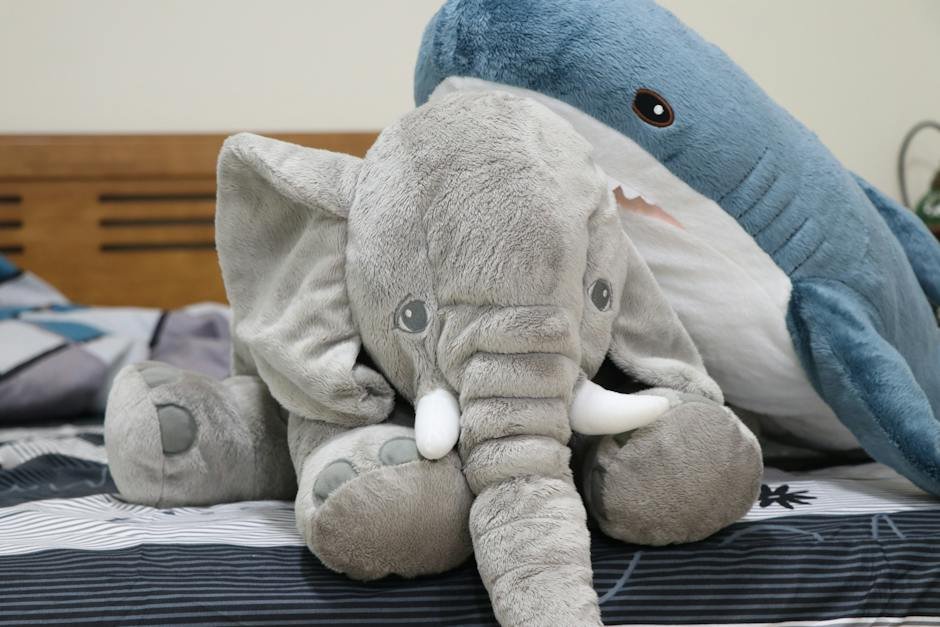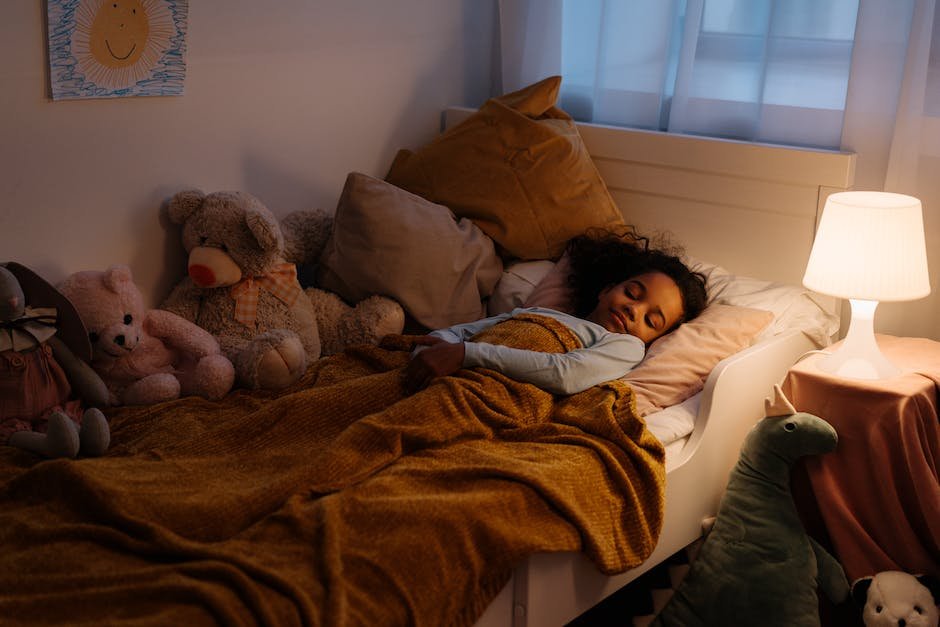
Dealing with sleep challenges for autistic children can be an uphill task for many parents. Given the perplexing complexities associated with autism, it’s essential to delve deep into the root causes and potential coping strategies of sleep disturbances often observed in these children. This includes understanding the role of sensory issues, irregular sleep-wake cycles, anxiety, and exploring the importance of well-established routines and lifestyle modifications. But beyond these non-medicinal interventions, there’s also a need to understand when and how medication can play a supplementary role. This dialogue strives to present an in-depth and balanced view of medication’s role, when it might be considered necessary, potential side effects, and the significance of professional guidance in making this intricate decision.
Understanding Sleep Challenges in Autistic Children
Navigating the Slumber Struggles: Understanding Sleep Challenges in Children with Autism
Hello, dear parents! We’re all about nurturing, wholesome family lives and empowering each other with knowledge and insights. Today, let’s delve into a cozy topic (or sometimes not-so-cozy for a few of us): sleep, more specifically, sleep in children who have autism.
Just like how every family makes a different secret ingredient for their cookie dough, each child is unique in their own way. But when it comes to children on the autism spectrum, the differences might slightly heighten, getting noticeable in aspects like sleep. It’s no news that many children with autism tend to struggle with sleep, however, understanding the reasons behind this is essential for helping little hearts get their sound sleep.
One essential factor is sensory sensitivities. Our darlings on the spectrum process sensory information differently. Bright lights, noises that seem normal to others, the texture of their pajamas, or even the temperature of their room can hinder their sleep. It’s like having a sleepover in a bustling theme park—too many sensations to hush down!
Children with autism also often struggle with anxiety. The world, with its flurry of social interactions and unspoken rules, can be challenging for our little troopers. This heightened anxiety can lead to sleep problems, tossing and turning, trying to make sense of it all.
Melatonin, our in-house sandman, often plays a misunderstood role in an autistic child’s sleep patterns too. For most of us, our bodies release melatonin to tell us it’s time to head to dreamland. However, studies have shown that children with autism might release melatonin later in the evening, pushing their inner clocks behind, making bedtimes a struggle.
Add to these, habitual behaviors, often referred to as rituals, which, while providing comfort to children on the spectrum, can sometimes interfere with their nighttime routine. A broken routine could mean a sleepless night.
All these factors can seem daunting, but facing this challenge together, as a community, sharing experiences and solutions, makes the journey less lonely and a lot more manageable. Remember, every challenge we embrace, every hurdle we help our children overcome, adds up to the beautiful bonding experience of parenting.
Just as with every other thing in their life, your child may require a little extra patience, understanding, and creativity to navigate sleep challenges. The different-ness of their situation may sometimes be challenging, yes, but it also paints a wonderful, vibrant spectrum of experiences. So keep that warm cup of understanding brewing, open up conversations, share, and find paths to sweet slumbers together. Until next time, sending love and light your way.

Various Approaches to Improve Sleep
Navigating Sleep Challenges: Non-Medication Strategies for Autistic Children
We all can agree that many parents count sleep deprivation as a badge of honor in raising children. However, when it comes to parents of children diagnosed with autism, sleep challenges can be far more taxing. Luckily, there are numerous non-medication strategies to help our superb kiddos achieve a better slumber.
Consistency is Critical
A consistent bedtime routine can pay dividends when it comes to managing sleep difficulties. This might mean strictly adhering to a wind-down period, involving a routine bath and tooth brushing, or engaging in a calm activity such as reading a favorite book. Setting the stage for sleep helps reassure your child and reduces potential stress, leading to a smoother transition to sleep.
Consider the Sleep Environment
To create an environment conducive to sleep, consider your child’s comfort and sensory preferences. This may include the kind of mattress, pillow, or bedding used, as well as the room’s lighting and temperature. Room-darkening curtains or a white noise machine may help enhance comfort by reducing invasive light or noise.
Respecting Bedtime Boundaries
Establishing clear “bedtime boundaries” can be crucial with children with autism. This may involve explaining that the bed is for sleep only, not for play or other activities. Having such a rule helps your child to associate their bed with sleep.
Physical Activity and Nutrition
Engaging in regular physical activity during the day can also aid in promoting sleep. This helps to tire the body physically, making it easier for your child to fall asleep at night. On the other hand, it’s also essential to pay attention to your child’s dietary habits. Certain foods or drinks, like those high in sugar or caffeine, can interfere with sleep if consumed closer to bedtime.
Respecting our Child’s Individuality
Every child on the autism spectrum is unique, which means what works for one child may not work for another. Keep an open mind, be willing to experiment with different strategies, and don’t be afraid to start from scratch if something isn’t working.
Finally, remember, Rome wasn’t built in a day! Progress may be slow, but each small victory is a step towards better sleep for your child and peace of mind for you. With perseverance and a toolbox full of strategies, navigating sleep challenges for children with autism becomes more manageable. You’re doing a great job. Keep going!

Role of Medication in Enhancing Sleep
Medication’s Role in Managing Sleep Issues in Autistic Children
Seamlessly dovetailing with the support systems already in place for children with autism who experience difficulty sleeping, there is the often overlooked aspect of medication. This isn’t meant to suggest giving up on established systems, habits, or routines. However, combining medication with existing strategies can work wonders in regulating your child’s sleep cycle, fostering better nights, and brighter mornings.
Initial reactions to the term ‘medication’ can induce apprehension for some parents, driven by the worry of potential side effects. However, medication should never be viewed as a hindrance, but instead as a helpful tool in the fight for better sleep for kids on the autism spectrum.
Take note that this doesn’t necessarily entail raising a pharmacological flagpole as soon as sleep problems arise. As with any therapeutic strategy, it isn’t a one-size-fits-all solution. Every child with autism is unique, and their response to various medications can vary.
Working in sync with a healthcare professional, a sleep-specialized pediatrician, or a neurodevelopmental pediatrician is of the essence. These professionals can guide you on when it might be appropriate to consider medication, and which would best fit your child’s needs and the severity of their sleep issues.
A range of medication options exists, from prescription drugs to over-the-counter sleep aids, vitamins, and dietary supplements. Prescription sleep medications, like clonidine and gabapentin, whilst only used in certain circumstances, have proven helpful in some children with autism who experience severe insomnia.
Over-the-counter options are usually the initial go-to, given their lower threshold for possible side-effects. Melatonin, a much-discussed hormone naturally produced by the central brain, responsible for sleep regulation, is often recommended. The key is to ensure the dose is appropriate, as more isn’t always better!
Although medication can play a pivotal part in managing sleep in autistic kids, remember it’s not a standalone solution. It works best when complemented with other strategies, such as maintaining a consistent bedtime routine, providing a sleep-friendly environment, and setting clear sleep boundaries. Having a well-rounded plan enhances the effectiveness, bringing about positive impacts on both the sleep patterns and the overall quality of life of your child.
Lastly, let’s not forget that you are the ‘expert’ of your child. Observing improvements, noting down possible side effects, and sharing these updates with the healthcare professional managing your child’s care allows the team to tweak the approach as needed and ensure the best possible results.
Navigating the complexities of sleep issues in children with autism can at times prove challenging, demanding unwavering patience and perseverance. Yet, combining the right strategies, with medication as a complementary approach, can transform these challenges into a journey towards a peaceful night’s rest. After all, the most stellar victories are born out of the most strenuous struggles. Onwards and upwards, amazing parents!

Navigating the Decision on Medication
Deciding if sleep medication would benefit a child with autism can be a challenging choice for parents. This decision shouldn’t be made in isolation, but with professional consultation and careful consideration. There are several aspects parents must contemplate when determining the appropriateness of sleep medication for their autistic children.
Firstly, it’s critical to evaluate the intensity and frequency of sleep troubles. If the difficulty in falling or staying asleep is an occasional occurrence, the recourse to medication might not be necessary. However, chronic sleep problems that seriously affect the child’s daily functioning and family life could warrant consideration of sleep medication.
Physicians will typically consider sleep medication when behavioral approaches and lifestyle modifications have not been effective or are not practical. Furthermore, the decision depends on the severity of sleep issues, the child’s overall health, age, any other medications being used, and how badly the sleep disturbance is affecting the child’s and family’s quality of life.
Secondly, parents should explore the potential benefits and risks of sleep medications. While some medications can help children settle into a more regular sleep pattern, they are not without side effects. These can range from mild issues like morning grogginess to more severe effects such as changes in mood or behavior. It’s important to understand that medication is not a cure-all solution; it’s just one part of a broader, more comprehensive sleep management plan.
Additionally, it is crucial to be aware that sleep medications might not work the same way for every child. Children with autism often have unique responses to medications partly due to their neurodiverse brains. What works for one child might not work for another, even if the symptoms seem identical.
Before starting any medication, parents should seek advice from a healthcare provider who has expertise in pediatric sleep disorders and an understanding of autism. They can provide guidance on suitable medication options and help monitor the child’s reactions and responses. Open communication between parents and healthcare professionals is crucial in managing and adjusting treatment plans.
Once a decision has been made to start sleep medication, parents are advised to follow safe medication practices. Administer the lowest effective dose and observe its impact. It’s essential to monitor your child closely to determine how effective it is and to check for any side effects.
Finally, it should be kept in mind that the goal is not just getting a child with autism to sleep. The ultimate aim is to ensure that they can rest and replenish effectively. This way, they can be at their best during their waking hours, developing skills, enjoying life, and achieving their full potential.
In conclusion, parents should consider sleep medication for their children with autism when necessary and beneficial, but not without careful discernment and medical advice. Be patient and don’t get discouraged if the first treatment doesn’t work as expected. Insomnia and other sleep issues can be tough to deal with, but many parents and kids alike have navigated these troubled waters successfully, and so can you. Share your experiences and ask for advice in supportive communities – all journeys are easier when we embark on them together. Stay resilient, and remember: better sleep could be just a pillow’s throw away.

Success Stories and Experiences
Real-life accounts of families grappling with sleep issues in children with autism reveal a range of strategies and coping mechanisms. Among the most common encounters reported, medication has recurrently emerged as an instrumental tool in helping manage sleep issues.
In many cases, families grapple with making the decision to introduce medication as a sleep aid. Confronting this uncertainty requires them to first understand sleep medications are not a one-size-fits-all solution. Instead, they are implemented to complement existing coping strategies, therefore requiring an individual, tailored approach.
One helpful method families use is initiating candid discussions with healthcare professionals. Parenthood presents countless moments of learning and unlearning. By engaging in open conversations with sleep experts and pediatricians, parents gain informed perspectives on prescription sleep medications like clonidine and gabapentin, as well as over-the-counter options such as melatonin.
Medication is seen as a means to assist, not replace, familiar sleep routines in these childhood years. For instance, maintaining a regular bedtime routine, ensuring conducive sleeping environments, and observing diet and physical activity, remain pivotal. In these efforts, parents serve as co-observers alongside health professionals, tracking improvements in sleep patterns and reporting them to healthcare providers.
Bringing in medication to the sleep equation is a journey fraught with hesitation for some parents. Valid concerns about side effects, dependency, and the overall impact on their child’s health are quite real. It is in these scenarios where collaborative decision-making becomes essential. Sleep physicians and pediatricians, armed with expertise in autism, can not only address these concerns but also guide parents on how to safely introduce and monitor the effects of sleep medication.
Observing the impact of medications and making timely adjustments becomes an integral part of the process. Each child’s response to medications is unique and monitoring their effects is crucial to ensure effectiveness. This task, though daunting, is a labor of love. One that demands patience, close observation, and above all, belief in the process.
While challenges are a given, the end goal remains the same: a good night’s sleep. The benefits of effective sleep are multifold, impacting overall health and the child’s ability to learn and develop. Therefore, navigating parents cling to the hope of successful sleep management, inspire others with their perseverance, reminding us that patience and resilience are at the heart of parenting.
As we continue sharing these real-life experiences, one thing is certain: Wearied but hopeful, families persist. By marshalling a variety of resources — including medications, community support, and their tireless commitment — they not only contribute to the collective wisdom but also foster hope for those on a similar path.
After all, the journey of parenting, particularly when walking alongside children with autism, though uniquely challenging, is also enriching. There’s joy to be found in overcoming each hurdle, one day, one night at a time. The courage to try varied strategies, the preparedness to embrace change, and most importantly, the unwavering love for their children, all echo the remarkable resilience in these heartening tales of caregiving.

Ultimately, the route to managing sleep problems in autistic children is not always straightforward. It demands patience, persistence, and well-informed choices. As we’ve traversed from understanding sleep difficulties in autistic children, incorporating lifestyle and behavioural modifications, to considering the role of medication, it’s clear to see that troubled sleep can’t be looked at in isolation but as an intricate part of a more complex circumstance. By concluding with accounts from families who have embraced medication to manage their child’s sleep difficulties, it serves as a comforting reminder that you’re not alone in this journey and revealing the possible solutions that worked for others. May this comprehension empower you to work closely with your healthcare provider and pave a path that’s best fitted for your child and your family.





